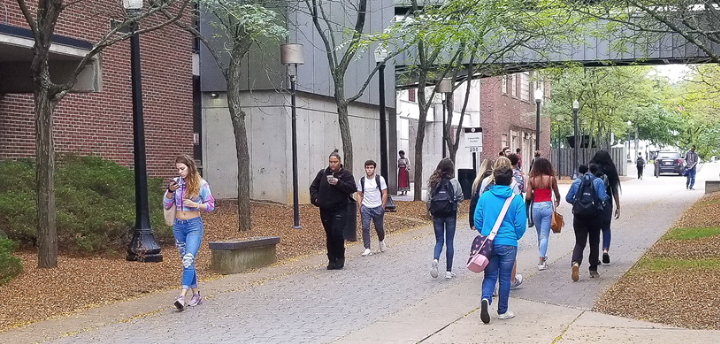
Danielle Martin
Staff Writer
The behavioral intervention program formally known as Student Threat Assessment Response Team or S.T.A.R.T is now under Dr. Cornelia Sewell-Allen, chair of student affairs. Along with a new leader, the program has a new name: C.A.R.E.
According to the ESU website C.A.R.E., or Campus Assessment Response and Evaluation Team is responsible for assessing reports of behavioral health issues on the parts of students and implementing intervention techniques.
“It is still to this day a vehicle for the campus community to address potential issues of concern related to students,” said Dr. Sewell-Allen.
If a student shows signs of behavioral distress, a fellow student or staff member can submit an online referral to C.A.R.E. which can be found on the ESU website. Referred warning behaviors can range from an abrupt negative change in hygiene habits to attempted suicide.
The 7-member team gathers weekly to look over referrals and take action, explained Dr. Sewell-Allen. Their goal is to help students achieve their academic goals even amidst the highs and lows of the college experience.
The last chair retired in January opening the position for Dr. Sewell-Allen. When starting her new position, Dr. Swell-Allen said the term “threat” in the former name sounded less inviting.
“What we were finding was that the majority of our cases that we would see, our students weren’t necessarily a threat,” she said. “We really do believe that the name C.A.R.E is appropriate because we want to provide that atmosphere for our students and so that’s one of the first things we did.”
Maria Cutsinger, director of Student Conduct, said the C.A.R.E team’s focus from just a threat assessment to an all accompanying wellness perspective for students.
“So maybe a student is displaying behaviors of looking disheveled maybe they are talking a little more about not wanting to be around which aren’t always threatening and so it was almost deceptive to have that type of name. So when I joined the university in July and noticed their new name, I was happy because we end up getting more referrals.”
The C.A.R.E. team is not a group of councilors. According to Dr. Sewell-Allen, the team “has representation across campus,” for instance health and wellness, police, academics and so on. They do not monitor student behavior but respond solely to referrals.
In the event that a student shows troubling signs, C.A.R.E might contact the police or the department of student housing to do a wellness check. They can also recommend counseling to students among other avenues. In the case of an emergency, Dr. Sewell-Allen recommends calling 911.
“The purpose is if you see something you say something. You refer,” said Cutsinger. “And the more people that refer on a student, the more information we have in order to gain a better knowledge about what that student might be struggling with and then get the resources put in place for that student so that they can clear that issue,”
Cutsinger also stated that the C.A.R.E team wants the community to know that ESU is committed to student success and that success may come in different forms.
“The people who sit on this team are extremely committed to assisting students,” she said, “and making their experience here very memorable in a positive way and if we can assist just one student, then we’ve done world of good for that person and the community.”
Email Danielle at:
dmartin33@live.esu.edu

